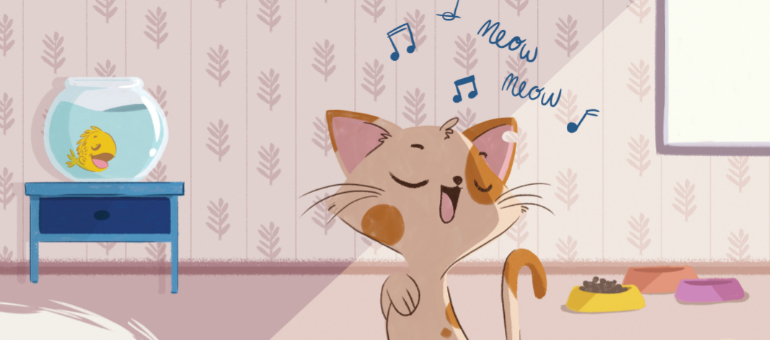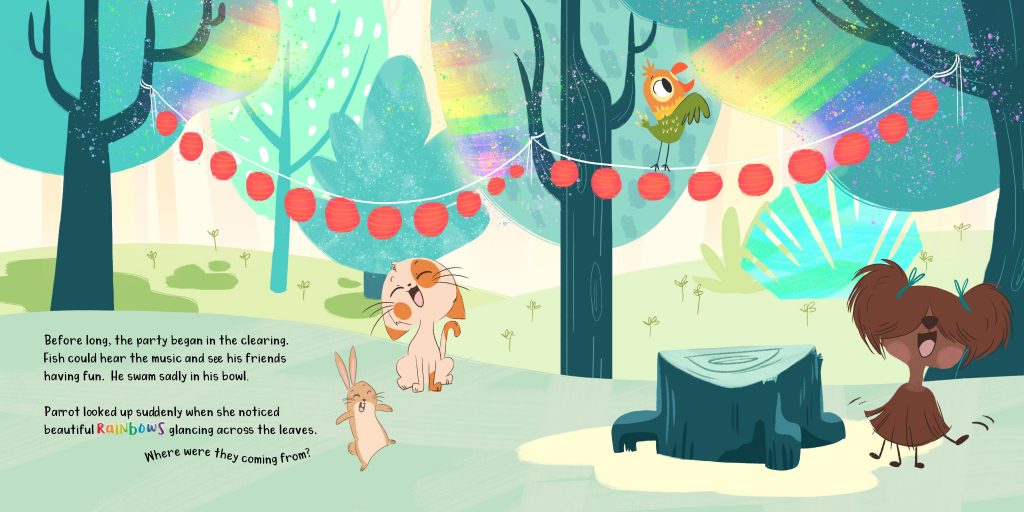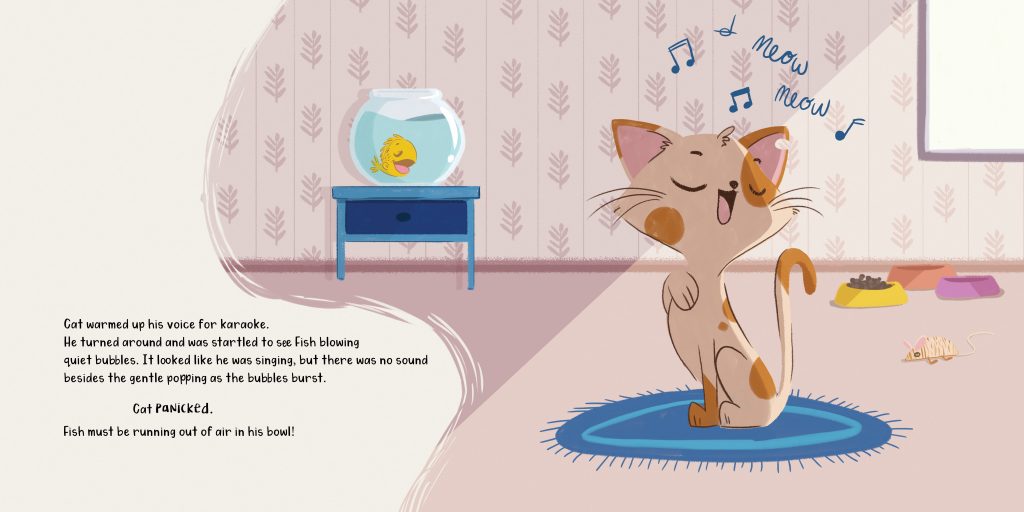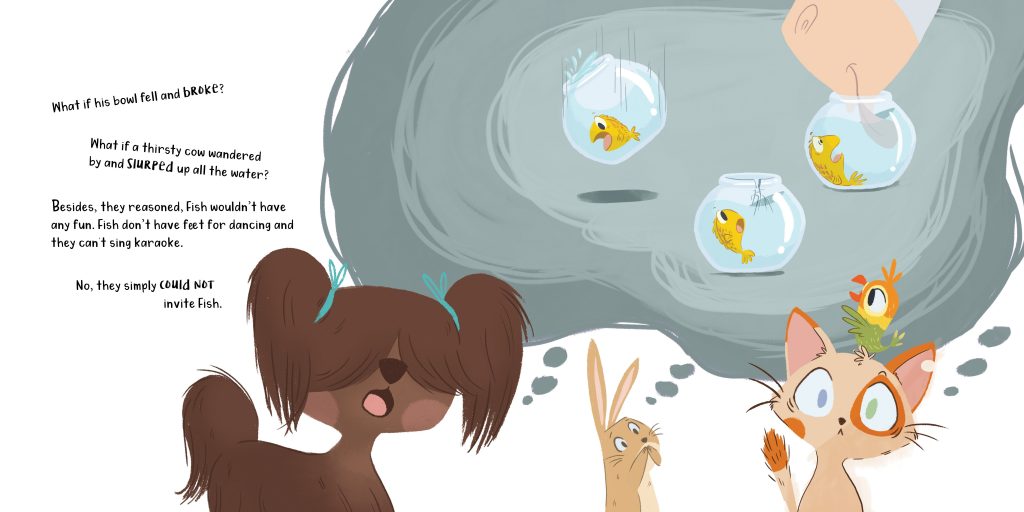This Brilliant New Picture Book Focuses on Inclusion and Accessibility

Once in awhile, a book comes along that just sits with you. This was my experience with Jessica Williams’ picture book, “You Can’t Invite a Fish to a Dance Party.” I’m no novice to kids books – in fact, I’m a bit of a kids book aficionado – so it takes something special for a book to stand out from the rest for me.
This book absolutely nailed it.
In this book aimed at children ages three to seven, the pet friends are throwing a party. There is going to be dancing, karaoke – everything a random assortment of animals needs for a roaring good time. Fish is there, in his bowl, watching as each pet gets invited to the party – except him. It’s not that the other pets don’t like Fish. In fact, it’s quite the opposite. Fish’s friends don’t invite Fish to the party because they are concerned for him. When Fish sings, there is no sound, so his friends think he is running out of air. When he dances, he looks like he has tired himself out and become ill.

Whenever Fish tries to do what his friends are doing, the other pets misinterpret his actions and worry for his safety. Out of concern, they move Fish’s bowl far away from the party. In the end, Fish finds a way to show them that he belongs in their space as much as they do.

The book is a clear allegory for kids who are excluded because of their differences, particularly those who are disabled or neurodiverse. By having the character be a fish, Williams leaves the specific differences open to interpretation, and applicable to everyone. The moral of the story is that even though we may not do everything the same way as each other, there is room for everyone to be included.
My six-year-old son loved the book and got the message right away. Williams’ words, accompanied by absolutely brilliant illustrations by Jimena de la Vega, do a fabulous job of conveying the emotions of each character, especially Fish. It is easy to see how Fish feels in each situation – the disappointment of not being invited, the joy he feels dancing and singing, the loneliness of being excluded, and the love he has for his friends.
I also loved that his friends were not being intentionally mean to Fish. We speak to children quite a bit about bullying and intentionally othering people. We talk about how awful it feels to be picked on for our differences. I have seen fewer books addressing the form of exclusion where well-meaning people make false assumptions about the abilities of others. Fish can do everything his friends can do, he simply does them in his own way. His friends did not need to learn a lesson about bullying, they were excluding him out of love. They needed a lesson in respecting the autonomy of people with different needs. His friends weren’t bullies, but they were unintentionally being ableist.

As someone who is disabled, I appreciated Williams promoting letting disabled people or neurodiverse people determine their own limits. Williams highlights the need to invite everyone to the table – or the party – and allow the invited guests to decide for themselves whether or not to go.
Williams also did a brilliant job of showing that in most cases, all that is needed for inclusion is a few changes to improve accessibility and the recognition that participation looks different for everyone. Doing so makes things better for everyone!
“You Can’t Invite a Fish to a Dance Party” will be available on November 12th, 2019. To find a place near you to nab a copy, visit jessicawilliamsonpaper.com/you-can-t-invite-a-fish-to-a-dance-party.















